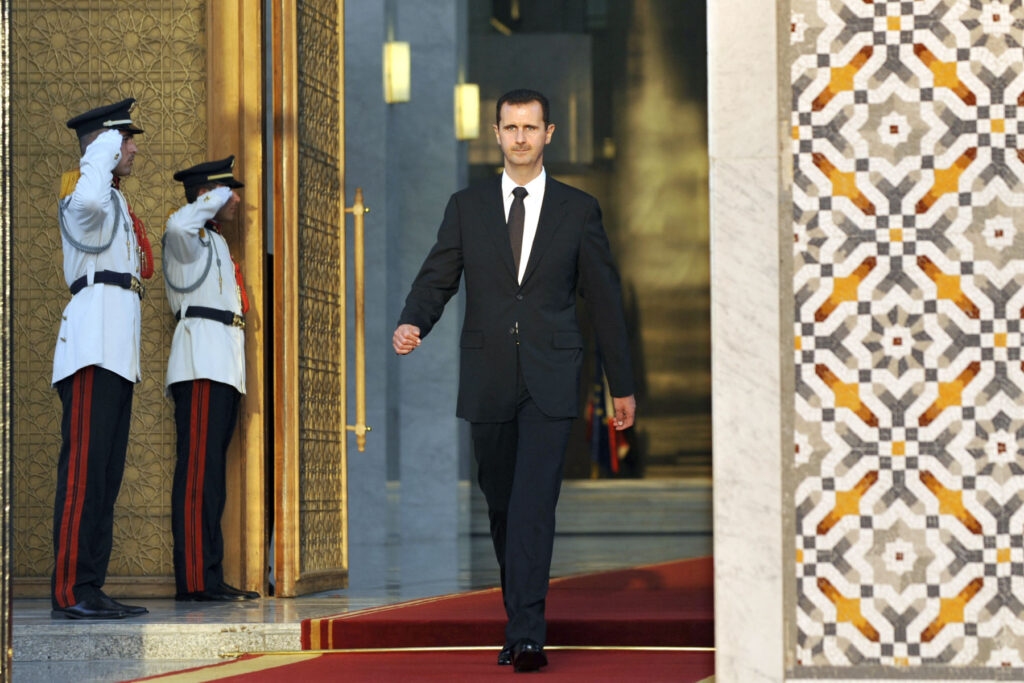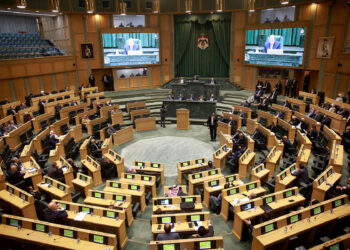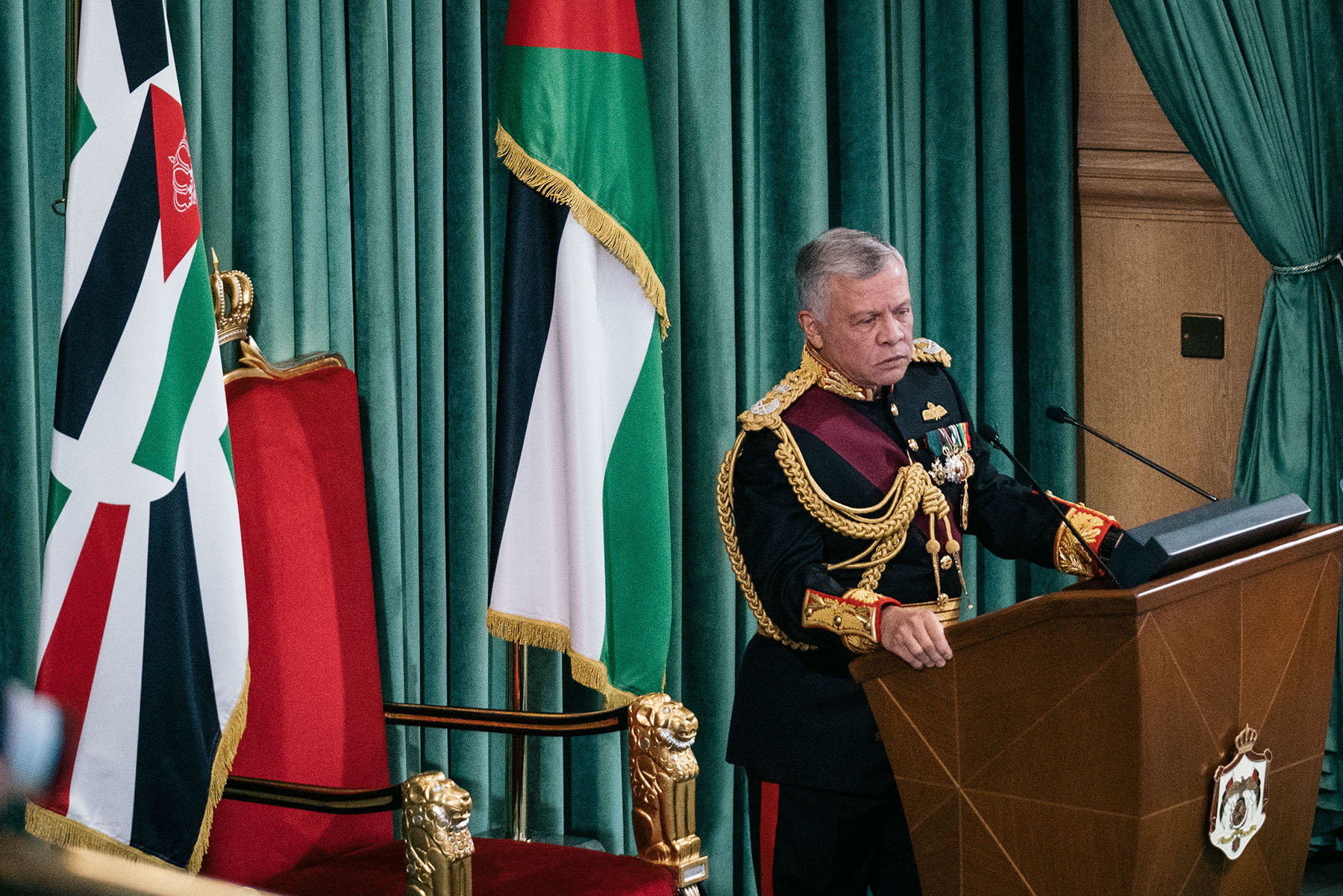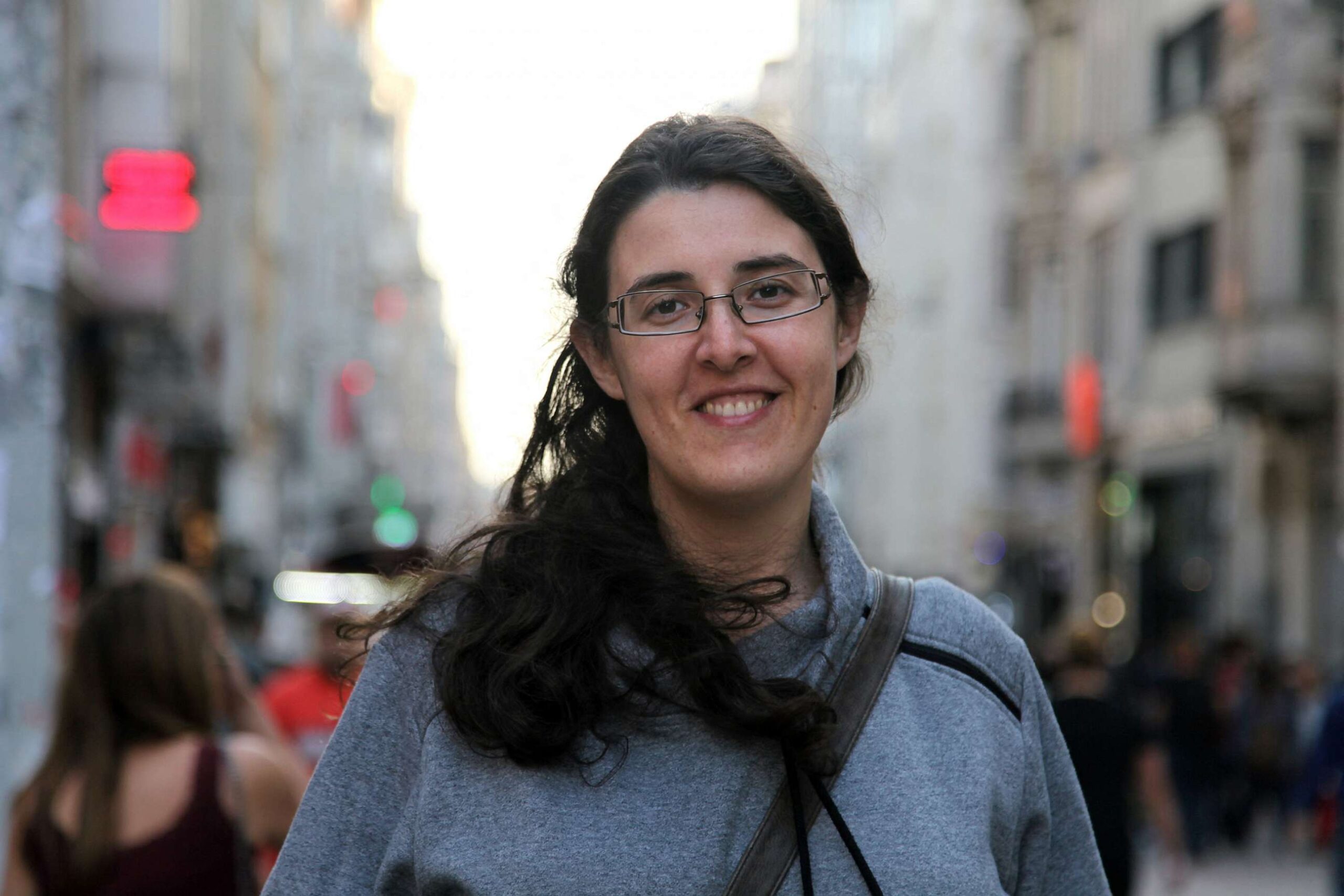Ambassador Frederic C. Hof is a senior fellow at Bard College’s Center for Civic Engagement. He is the author of Reaching for the Heights: The Inside Story of a Secret Attempt to Reach a Syrian-Israeli Peace.
As events unfolded in Syria over the past two weeks, what struck me most sharply was how little I really knew about a country that had captured my affection and imagination long ago, when as a 16-year-old, I traveled to Damascus to live with a Syrian family for the summer. Like nearly everyone, except those Syrians totally indisposed to surrendering, I thought the regime of Bashar al-Assad would hold on indefinitely. How wrong I was.
When Assad succeeded his father in 2000, there was widespread hope in Syria that the young ophthalmologist would relax the stern authoritarianism of Hafez al-Assad and allow the country to breathe. There were times over the succeeding decade when those hopes seemed somewhat justified, notwithstanding the fact that Syrian prisons remained filled with political dissenters even as the young president and his stylish wife smiled for the cameras.
When Assad, during President Barack Obama's first term, personally blessed U.S. mediation aimed at reaching a peace deal between Syria and Israel, those of us directing the diplomacy calculated that he had the requisite legitimacy in Syria to make peace with the Jewish state. As the lead diplomatic mediator for the U.S., I found Assad to be engaged and focused. The last time I saw him was on the last day of February 2011. We met one-on-one in a small palace in the hills high above Damascus.
My mission as chief mediator was to confirm that Assad fully understood and was prepared to implement what would be required of Syria in the context of a formal peace treaty with Israel. Assad's price for peace was the return to Syria of all territory taken from it by Israel in the June 1967 war, primarily the Golan Heights. Under the terms of the deal, Israel's occupation of the Golan would finally end, something Hafez al-Assad had long promised but never delivered. Israel was, in principle, willing to pay that price. Indeed, much of my time in Jerusalem was spent with Prime Minister Benjamin Netanyahu's team trying to determine the exact extent of the acreage in question. But Israel's price for this strategic real estate was by no means low. It wanted Syria to sever its military relations with Iran, Hezbollah and Hamas.
I spent a sleepless night before meeting Assad, suspecting he would balk at the price and end the mediation. Yet the next morning, when I spelled things out in excruciating detail, he did not hesitate to express his full agreement. How, he asked, could Syria be at peace with Israel while retaining such relationships? Iran, he assured me, would respect Syrian interests in this matter. Hezbollah, he affirmed, would become a normal Lebanese political party, because Lebanon would follow Syria into peace with Israel. He told me that he had already instructed the president of Lebanon to prepare his negotiating team.
I left our meeting with mixed feelings. I had profound doubts that Iran and Hezbollah would simply roll over for the sake of Syria recovering its lost land. But Assad had agreed to everything I had placed before him. When I briefed Netanyahu two evenings later, I received from him an explicit green light to proceed toward concluding the negotiations. A White House colleague and I began to make plans to bring the two parties together for proximity talks in an Eastern European capital. I was living the dream first formed in the mind of a 16-year-old exchange student many decades earlier. Peace between Syria and Israel seemed to be taking shape.
The regime that Hafez al-Assad had established 54 years ago, and which had ruled with an iron first, had turned to dust.
- Frederic C. Hof
Within a few weeks, though, the dream became a nightmare, one that extended all the way to December 8, 2024. Assad's security forces opened fire on peaceful demonstrators in the southern city of Daraa who were protesting after the police detained a group of local children for painting anti-government graffiti on the walls of a school, inspired by the popular uprisings in Tunisia and Egypt. Assad's cousin was the chief of security forces in Daraa. The young boys were tortured and some of them, including 13-year-old Hamza al-Khateeb, were killed. His mutilated corpse, returned to his family after a month, was the final outrage to people in Daraa and across Syria living under an Assad family regime built on the mass detention of political prisoners.
The demonstrations spread, and so did state terror. Assad did more than throw away peace with Israel, consigning the Golan Heights to Israel forever. He set Syria on the path to utter destruction. "Assad or we burn the country" was the notorious slogan spray-painted by regime forces on the ruins of towns and cities that rose up and were met with siege and starvation. With the dubious help of Iran and Russia, Assad set the conditions that would eventually force him to flee for his life.
There was nothing in my encounters with Assad that indicated to me he had an appetite for mass murder and war crimes. I never felt I was in the presence of Hitler, Stalin or Saddam. Indeed, when the violence started in mid-March 2011, I thought that he and his British-Syrian wife, Asma al-Assad, would end it quickly—that they would sideline the security forces responsible for the worst abuses, like the brutality in Daraa, compensate the families of victims and insist on law and order. I expected them to be highly visible in trying to defuse Syria's version of the Arab Spring—to enact actual reforms that would match their reformist image. But no. Never once in the succeeding 13-plus years did the Assads ever express any regret for the destruction and suffering they unleashed on Syria.

Bashar's father, Hafez, an austere military man with an appetite only for power, used corruption strategically to bind Syrian political actors to him. Personally, he had no use for fast cars, luxury goods or foreign bank accounts. Under Hafez al-Assad, Syria was a mostly functional if highly repression state, despite widespread corruption. It was so because the man at the top could not be distracted. He was single-mindedly ruthless and disciplined, always carefully positioned to capitalize on the mistakes of others. To use a boxing metaphor, he was the best counterpuncher in the business.
Bashar himself had no interest in politics until the death of his older brother, Basil, the favored son, who died behind the wheel while apparently attempting to set the land-speed record from downtown Damascus to the airport. Bashar, not yet 30 years old, instantly replaced Basil as heir-apparent to his father. His London studies in ophthalmology ended abruptly and crash courses in running Syria began. Amending the Syrian constitution to lower the age of eligibility for the presidency was, under Hafez, just a formality.
Hopes were high in Syria when the young Dr. Assad took over in 2000 after Hafez's death. In the salons and political manifestos of the short-lived "Damascus Spring," it appeared that politics might reemerge from the enforced coma in place since 1970. There was a degree of economic modernization, as something resembling a banking system emerged. But the regime's signature political repression never faded. And at some point, the differences between Bashar and his father seemed not to favor Assad the younger. Where Hafez has been the undisputed master of Syria's relationships with Iran and Hezbollah, Bashar became the subordinate. When Bashar wanted to rid himself of the troublesome former Lebanese Prime Minister Rafik Hariri, he pressed the Iranians to give the murder contract to Hezbollah. Hariri was indeed killed, but Syrian occupation forces that had been in Lebanon since 1976 were finally expelled thanks to Bashar's fingerprints.
It was, however, the vast personal corruption that marked Bashar's parting of company most decisively from his father. He, his extended family and his entourage had expensive tastes and voracious appetites. No longer was there anyone in charge using corruption strategically to bind the regime together. Instead, there was just kleptocracy laced with incompetence. The regime was only able to survive the uprising-turned-civil war with the help of Iranian militias and the Russian military, fighting its armed opposition to a standstill for more than a decade. But it was the standstill itself, with front lines frozen between the regime and rebel forces in opposition-held Idlib province for some five years, that enabled the Assad family's viral rot to infect Syria's armed forces.
Assad's desire for cash in the face of Western, mainly American, economic sanctions led him not only to seize the wealth of relatives, but to transform Syria into a narco-state producing captagon amphetamines in quantities that flooded the Middle East. Recent testimony by Syrian soldiers suggests that their officers participated in this enterprise and other forms of criminality, absenting themselves from military duty while expecting their subordinates to fight and die for the regime.
There is much uncertainty about what comes next in Syria. But one thing is indeed certain. With the Assads gone, it is now credible for Syrians to think about a brighter future,
- Frederic C. Hof
This systemic rot accounts for the fact that Syrian rebels, seeking only to take limited advantage of setbacks suffered by their Iranian and Hezbollah enemies, made a successful run on Aleppo barely two weeks ago. They occupied Syria's second-largest city almost effortlessly, watching incredulously as Syrian soldiers abandoned their posts. Facing south, they wondered if they might also waltz into Hama; they did. Would it be remotely possible, they wondered, that the regime would not defend Homs, the gateway to both Damascus and the coast? When they encountered no ring of steel around Homs, they knew the door to Damascus was wide open.
In Damascus, Assad gradually became aware that his army was evaporating. He called on his Russian and Iranian patrons to rescue him once again, as they had a decade earlier. No doubt they wanted to do so. But their inability to had less to do with distractions in Ukraine and the threat of the Israeli Air Force than the condition of the hollowed-out Syrian Army. Unlike a decade ago, there wasn't an army that they could prop up. There were no Syrian soldiers fighting on the ground for whom the Russian Air Force could provide tactical support. There was nothing for Iranian-led militia auxiliaries to reinforce. The regime that Hafez al-Assad had established 54 years ago, and which had ruled with an iron first, had turned to dust. All that was left to his son was to execute a contingency plan to leave the country, one reportedly featuring the last-minute looting of Syria's Central Bank on the way to the airport and a flight to Moscow.
As it happened, I had not underestimated the appetites driving the Assad crime family and its entourage. Neither had I underestimated the impact of lawlessness at the top of the regime on Syria as a whole. But I overestimated greatly the regime's ability to compel Syrians in uniform to defend it.
There is much uncertainty about what comes next in Syria. But one thing is indeed certain. With the Assads gone, it is now credible for Syrians to think about a brighter future. It will take years for decent, inclusive and legitimate governance to root itself in Syria. What is gone, however, is a criminal conglomerate that killed some 300,000 civilians over 10 years of war, wounded and traumatized countless more, displaced some 60 percent of the country's population, operated torture chambers with Gestapo-like methods and records, and turned an important hub of civilization itself into a narco-state. Even as Syria lay in ruins, a crime family and its enablers pillaged the wreckage as thoroughly as they could, living in obscene opulence while many people were starving.
Bashar al-Assad now resides in Moscow. Ideally the day will come when he and Vladimir Putin share a one-way flight to The Hague, where they can be held accountable for war crimes and crimes against humanity. In the meantime, however, Syrians for the first time in more than half a century have a shot at dignity, prosperity and freedom. The day may come when getting out of Syria will not be the top priority of the country's best and brightest. For a one-time 16-year-old exchange student, that day cannot come quickly enough.

















![Security forces loyal to the interim Syrian government stand guard at a checkpoint previously held by supporters of deposed president Bashar al-Assad, in the town of Hmeimim, in the coastal province of Latakia, on March 11, 2025. Syria's new authorities announced on March 10, the end of an operation against loyalists of deposed president Bashar al-Assad, after a war monitor reported more than 1,000 civilians killed in the worst violence since his overthrow. The Syrian Observatory for Human Rights said the overwhelming majority of the 1,068 civilians killed since March 6, were members of the Alawite minority who were executed by the security forces or allied groups. (Photo by OMAR HAJ KADOUR / AFP) / “The erroneous mention[s] appearing in the metadata of this photo by OMAR HAJ KADOUR has been modified in AFP systems in the following manner: [Hmeimim] instead of [Ayn Shiqaq]. Please immediately remove the erroneous mention[s] from all your online services and delete it (them) from your servers. If you have been authorized by AFP to distribute it (them) to third parties, please ensure that the same actions are carried out by them. Failure to promptly comply with these instructions will entail liability on your part for any continued or post notification usage. Therefore we thank you very much for all your attention and prompt action. We are sorry for the inconvenience this notification may cause and remain at your disposal for any further information you may require.”](https://dawnmena.org/wp-content/uploads/2025/04/syria-22039885951-350x250.jpg)












![Security forces loyal to the interim Syrian government stand guard at a checkpoint previously held by supporters of deposed president Bashar al-Assad, in the town of Hmeimim, in the coastal province of Latakia, on March 11, 2025. Syria's new authorities announced on March 10, the end of an operation against loyalists of deposed president Bashar al-Assad, after a war monitor reported more than 1,000 civilians killed in the worst violence since his overthrow. The Syrian Observatory for Human Rights said the overwhelming majority of the 1,068 civilians killed since March 6, were members of the Alawite minority who were executed by the security forces or allied groups. (Photo by OMAR HAJ KADOUR / AFP) / “The erroneous mention[s] appearing in the metadata of this photo by OMAR HAJ KADOUR has been modified in AFP systems in the following manner: [Hmeimim] instead of [Ayn Shiqaq]. Please immediately remove the erroneous mention[s] from all your online services and delete it (them) from your servers. If you have been authorized by AFP to distribute it (them) to third parties, please ensure that the same actions are carried out by them. Failure to promptly comply with these instructions will entail liability on your part for any continued or post notification usage. Therefore we thank you very much for all your attention and prompt action. We are sorry for the inconvenience this notification may cause and remain at your disposal for any further information you may require.”](https://dawnmena.org/wp-content/uploads/2025/04/syria-22039885951-360x180.jpg)







